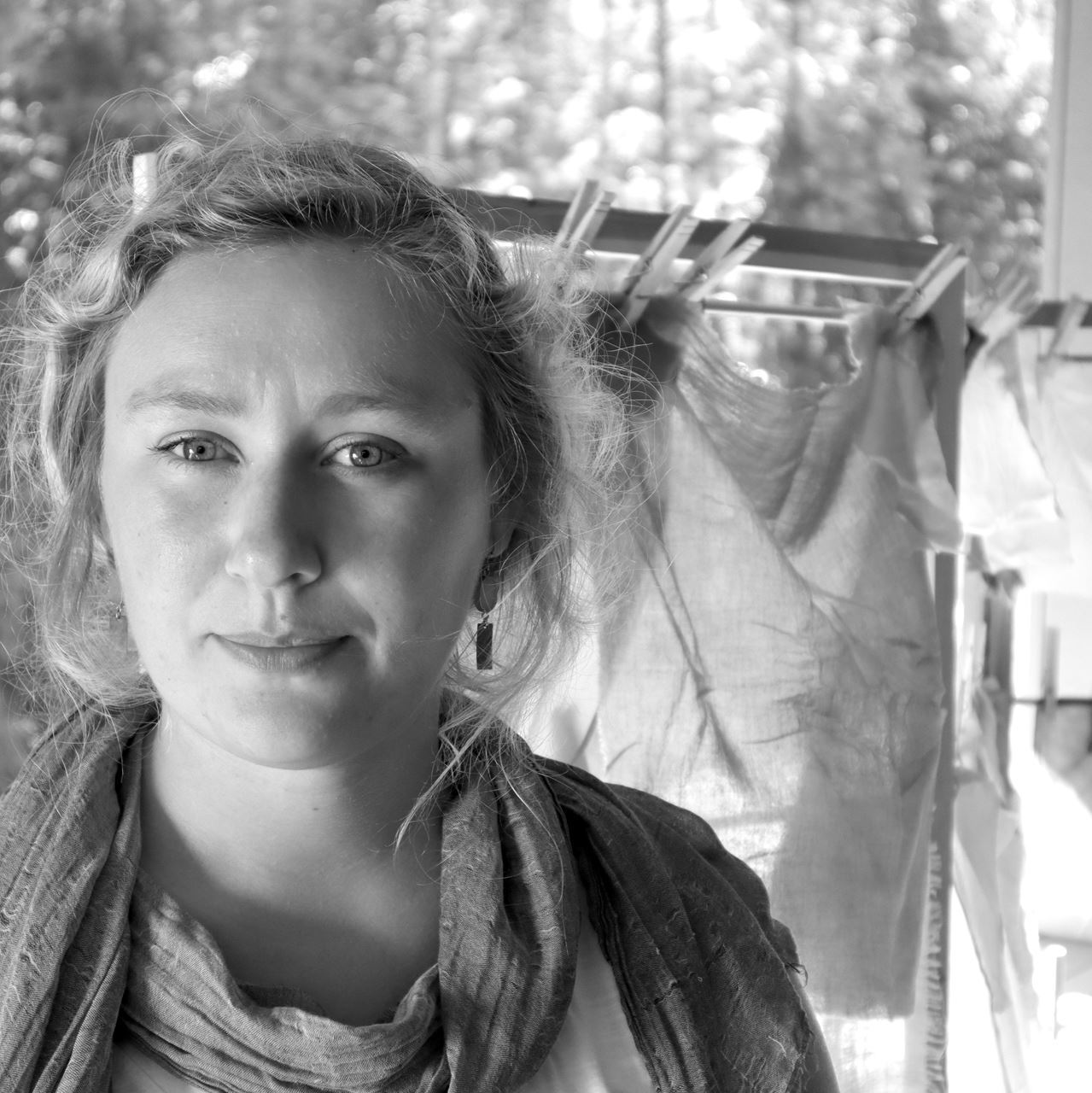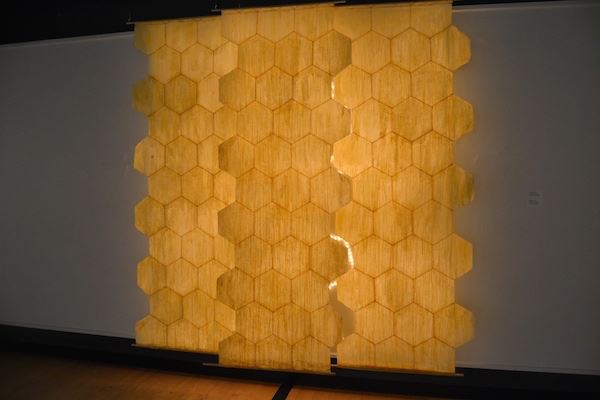
MEMBER SPOTLIGHT
March 4, 2024
This week we recognize Madelaine Corbin, and a decade of her multi-disciplinary works in drawing, fiber arts, installation, sculpture, and writing/prose.
Artist statement:
"A fleck of ash, drop of blue, grain of salt, speck of dust, and particle of soil—a constellation of meaning is composed from these elements. My practice earnestly endeavors to listen to, translate, and contextualize the conversation between the vibrancy of matter sensed by our fingertips and the expansive questions cultivated by the equally vast universe around. Spaces that invite wonder and interdisciplinary research coalesce to question the quotidian materials accepted as normal, when few things are actually so. Dirt, salt, and dust are not so simple. Interminable investigations into subterranean histories, values, politics, sciences, fictions, and natural phenomena re-evaluate the inherent meanings embedded in matter[1]. Using my own relationship to ecology[2] rooted in a valley town in Oregon as a starting point, I articulate the complexity and range of relationships to the land beneath our feet, that which once was, and that which will never be."
click images for more info

"My practice is an archaeological[3] journey to unearth, question, and mend the space between home and land, human and non-human, “wild” and “managed” landscapes, and the connection to one another through geographic distance. In a recent series, text, soil, and weeds[4] re-contextualize and de-/re-construct the context of natural materials to better understand notions of home, land, and belonging through the lenses of native, invasive, poisonous, and medicinal characterizations of plants. Metaphors transmit meaning between humans and plants through the il/legality of growing here versus there, there versus here. Text is reversed to decentralize a singular vantage point into many and for many. The desire for a fixed object to exist in perpetuity is both accomplished and evaded as the work realigns with geologic, cyclical, and seasonal time and asks to be tended and maintained while it learns to exist in its own rhythms. The work evolves. The work requires care. At once, the work is both ephemeral and a window into a possible forever."
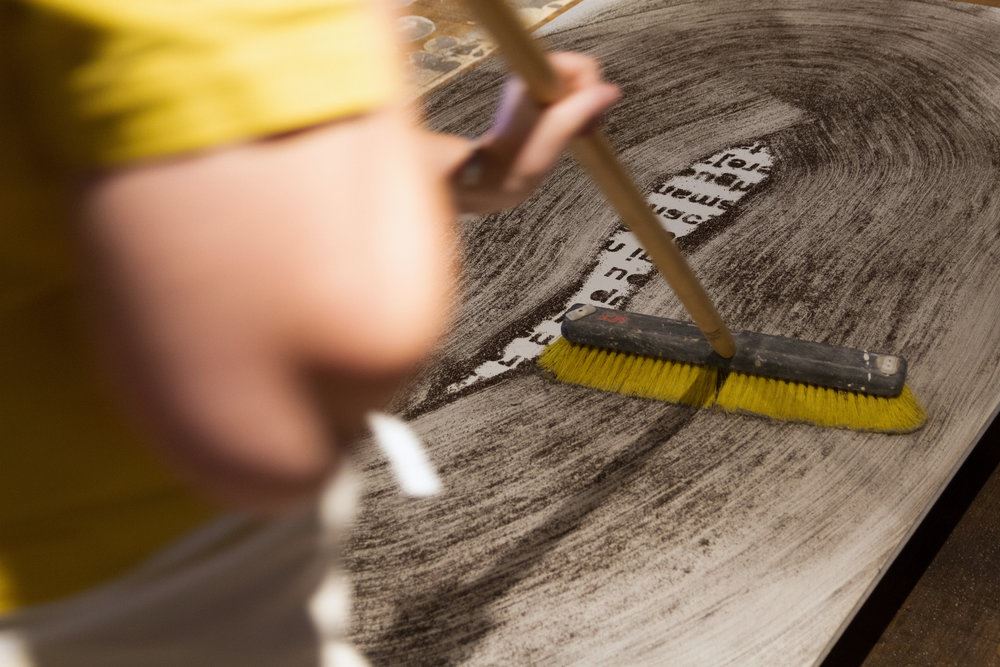
"With eco-tragedies already defining the 21st century—the swelling seas losing their blue to acidification, the tone-deaf colonization of terrain beyond repair, the decapitation of mountains for minerals and other resources[5]—how can we rehabilitate communal imagination with urgency? With the information embedded in matter and history, can we speculate about possible futures? If dirt is the common denominator of our shared experience[6], how can it be made not only audible but made mentor[7]? These questions, and the pursuit of their answers, define the trajectory of my practice. It is my sincere hope that together we can learn to read the earth, establish a nonviolent ecological order, and share a vision of the future."
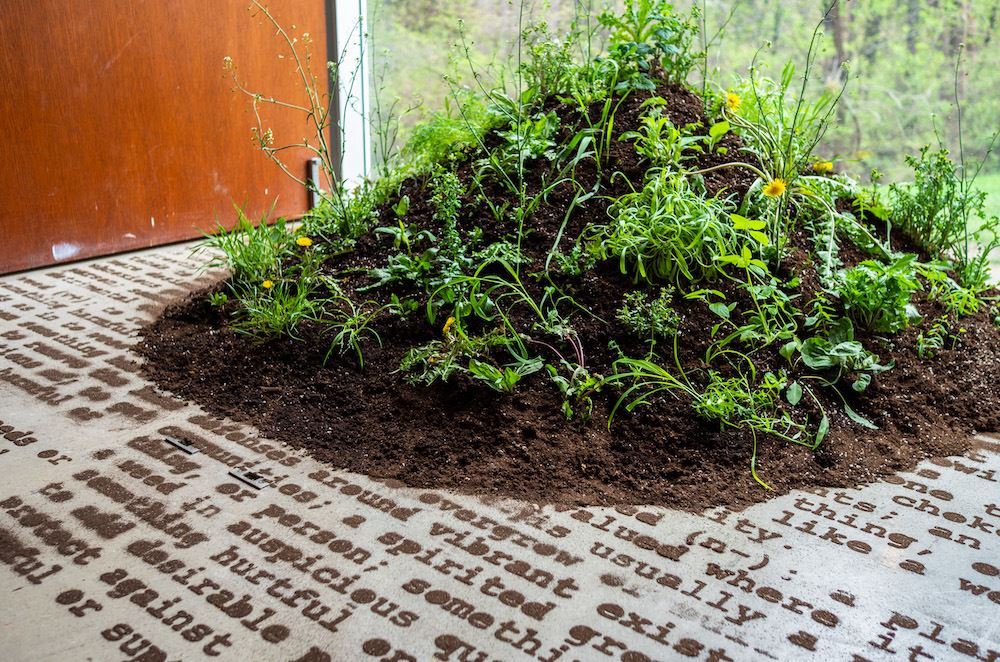
Notes
[1] When listened to, substance dictates significance.
[2] The etymological root of “ecology” combines house, dwelling, or habitation with the study of (and, specifically, the study of the relationship between living things and their environments). It is through the graying of this space between home and environment that my practice is catalyzed.
[3] Archaeology in the sense that it is the opposite of industrial construction—as time read backwards. This is a concept articulated best by JB Jackson, writer and sketch artist in landscape design. Lucy Lippard adds contextual notes on this in her book, Undermining: A Wild Ride through Land Use, Politics, and Art in the Changing West.
[4] At least, plants currently considered “weeds” until they prove useful to humans or are reclassified as endangered.
[5] Lucy Lippard writes of these eco-tragedies in Undermining: A Wild Ride through Land Use, Politics, and Art in the Changing West.
[6] As it has been since long before we listened to it. Rebecca Solnit explains dirt in this way in her collection of essays, As Eve Said to the Serpent.
[7] “The microcosm as mentor to the macrocosm” is a concept written about by Wendell Berry.
"The phenomena of everyday magic—things that seem simple—are anything but. Dirt, salt, dust, and blue are immensely complex worlds. My work unfolds these complexities, examines them, and then conceptually stitches them back together. My work exists at the interstice of science, fiber craft, and writing. My goal is to gently mend empathic relationships between the climate crisis and ourselves. Instead of alarmism, softness. Instead of disembodied statistics about the rise of seas and temperature, embodied understanding—putting hands in soil, watching color change in the sun, listening to a cave’s echo. The approach is urgent. It reinstates sensitivity over numbness, listening over being told, hope over apathy."
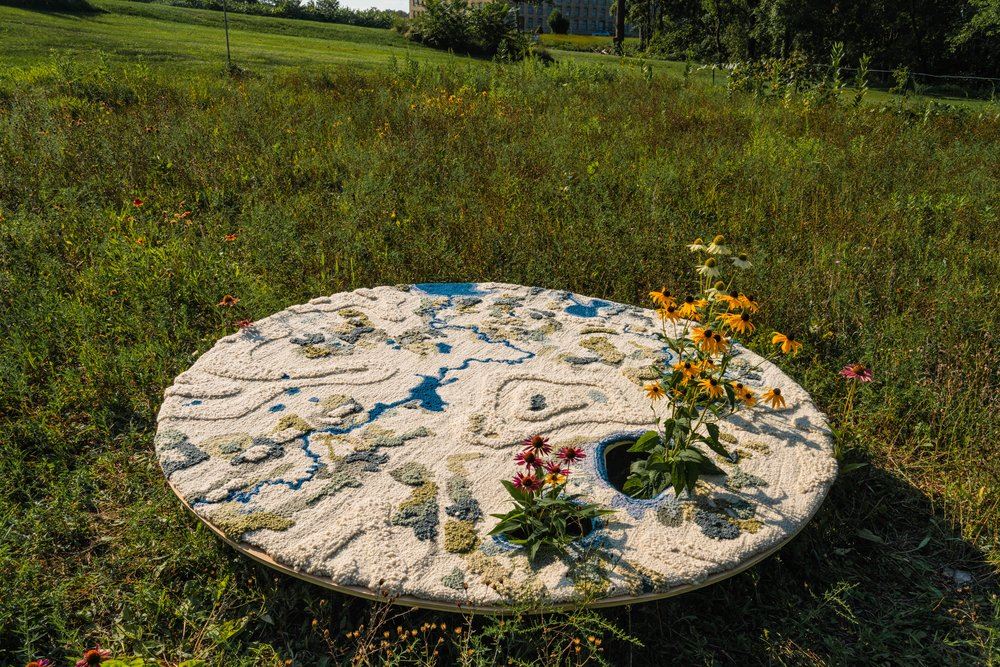
Madelaine Corbin is a multidisciplinary artist based primarily in Oregon in the United States. Corbin received an MFA from Cranbrook Academy of Art in Fiber and BFA from Oregon State University. Her research-based practice moves fluidly between drawing, writing, sculpture, textiles, and natural dyeing. Corbin’s work is informed by her participation in the New York Arts Practicum, immersive study in Greece, and as an artist-in-residence and research assistant in a chemistry lab where she helped to synthesize and characterize a new blue. Corbin recently authored The Stuff of Everyday Magic, a book about her research adventures into the color blue. Her work has been supported in the form of residencies at the Oak Spring Garden Foundation, The Bloedel Reserve Creative Residency in Research, Prairie Ronde Artist Residency, Pine Meadow Artist Residency, and The League of Stars. Corbin’s work has been recognized by awards including a fellowship to attend Haystack Mountain School of Crafts in 2019, the 2020 Mercedes-Benz Emerging Artist Award bestowed by Cranbrook Academy of Art, Honorable Mention for the 2020 Dorothy Waxman International Textile Design Award, and the 2020 Redmond Design Prize. In 2022-2023, Corbin was awarded a Fulbright Fellowship to pursue a research and arts project about textile traditions and contemporary craft in Greece. www.madelainecorbin.com
Featured images (top to bottom): ©Madelaine Corbin, Colony Collapse Disorder, 2014-2015; Mobile Color Laboratory, 2016-2017; From Above, For Below (we share a center), 2018; Did They Not Tell You That You Are A Protector, 2019; A Moon In A Meadow, In A Moon, 2023; portrait of the artist.
